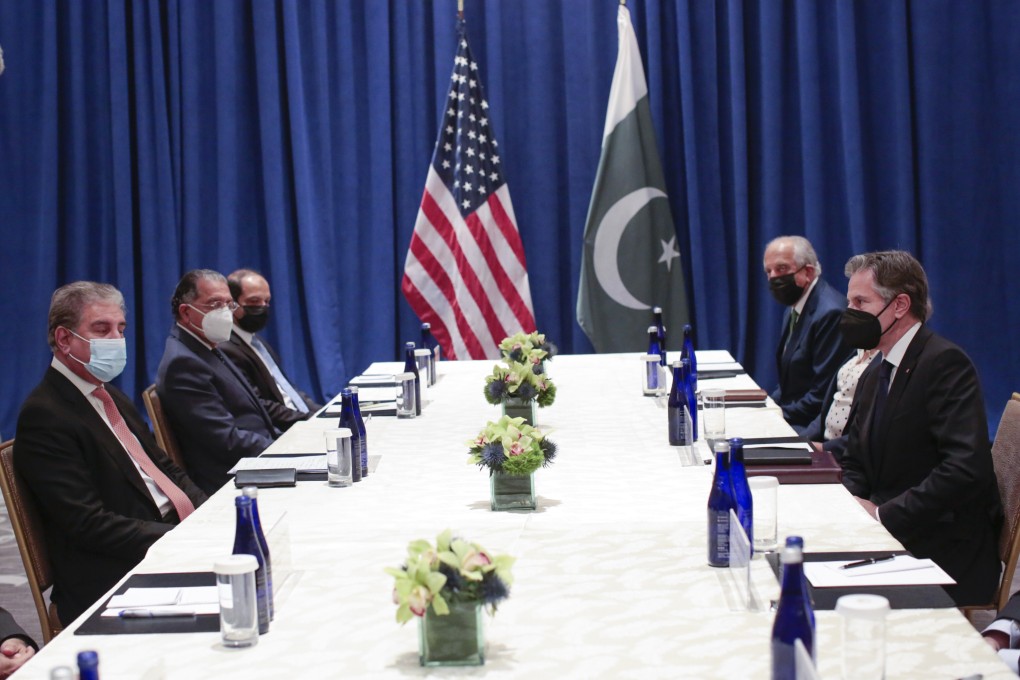Pakistan fears US is targeting its China links as it seeks to settle scores from Afghanistan
- After the fall of Kabul, Washington no longer needs Islamabad. Indeed, it is still smarting from Pakistan’s harbouring of the Taliban
- This leaves plans to expand the China-Pakistan Economic Corridor into Afghanistan vulnerable, not least because Beijing has its own doubts about its ‘iron-clad’ ally

“This is one of the things we’re going to be looking at in the days, and weeks ahead - the role that Pakistan has played over the last 20 years, but also the role we would want to see it play in the coming years and what it will take for it to do that,” Blinken said.
Pakistan retains its status as a “major non-Nato ally” despite being denied US military assistance since September 2018.
Blinken told the Congressional committee that Pakistan had a “multiplicity of interests, some that are in conflict with ours”.
“It is one that has involved hedging its bets constantly about the future of Afghanistan, it’s one that has involved harbouring members of the Taliban ... It is one that is also involved in different points of cooperation with us on counterterrorism,” Blinken said.